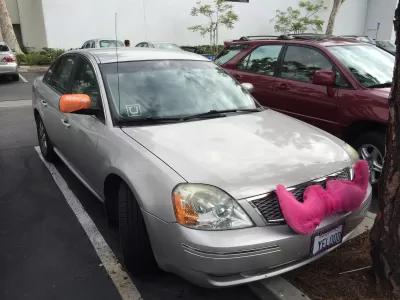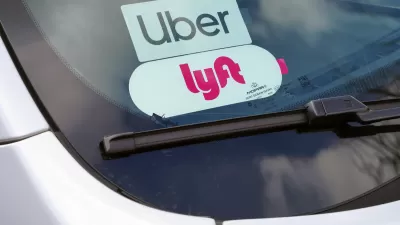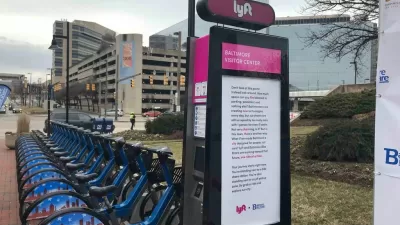The companies' agreement with Governor Charlie Baker's administration requires a state-run check in addition to the usual check through an independent contractor. Fingerprinting, however, will not be required.

Massachusetts is increasing the pressure on Uber and Lyft to hire dependably safe drivers. Adam Vaccaro writes, "The popular on-demand ride services already require their drivers to pass background checks conducted by third-party vendors before they can get on the road. But a law passed over the summer brought the state into the fold, requiring drivers to both pass the company check and one from the state." Current drivers must pass the new checks by April 3, 2017.
"The state will conduct Criminal Offender Record Information and Sex Offender Registry Information background checks and consult Registry of Motor Vehicles records to determine drivers' suitability. The state will also know whether applicants face any arrest warrants in Massachusetts, which Uber and Lyft cannot determine."
The agreement provides that "one past incident of violent crime, sexual assault, driving under the influence, reckless driving, or driver's license suspension could be grounds for denying an applicant." In a compromise, the state will not require driver fingerprinting.
Under the Massachusetts system, "Different offenses will draw different levels of scrutiny. For example, officials will search for reckless driving convictions within the last seven years, but the 'look-back period' for a sex offense is unlimited. Drivers with more than four traffic violations or at-fault accidents on their record over a three-year period will be denied."
FULL STORY: Uber, Lyft drivers to face background checks sooner than expected

Alabama: Trump Terminates Settlements for Black Communities Harmed By Raw Sewage
Trump deemed the landmark civil rights agreement “illegal DEI and environmental justice policy.”

Study: Maui’s Plan to Convert Vacation Rentals to Long-Term Housing Could Cause Nearly $1 Billion Economic Loss
The plan would reduce visitor accommodation by 25% resulting in 1,900 jobs lost.

Why Should We Subsidize Public Transportation?
Many public transit agencies face financial stress due to rising costs, declining fare revenue, and declining subsidies. Transit advocates must provide a strong business case for increasing public transit funding.

Paris Bike Boom Leads to Steep Drop in Air Pollution
The French city’s air quality has improved dramatically in the past 20 years, coinciding with a growth in cycling.

Why Housing Costs More to Build in California Than in Texas
Hard costs like labor and materials combined with ‘soft’ costs such as permitting make building in the San Francisco Bay Area almost three times as costly as in Texas cities.

San Diego County Sees a Rise in Urban Coyotes
San Diego County experiences a rise in urban coyotes, as sightings become prevalent throughout its urban neighbourhoods and surrounding areas.
Urban Design for Planners 1: Software Tools
This six-course series explores essential urban design concepts using open source software and equips planners with the tools they need to participate fully in the urban design process.
Planning for Universal Design
Learn the tools for implementing Universal Design in planning regulations.
Smith Gee Studio
Alamo Area Metropolitan Planning Organization
City of Santa Clarita
Institute for Housing and Urban Development Studies (IHS)
City of Grandview
Harvard GSD Executive Education
Toledo-Lucas County Plan Commissions
Salt Lake City
NYU Wagner Graduate School of Public Service





























